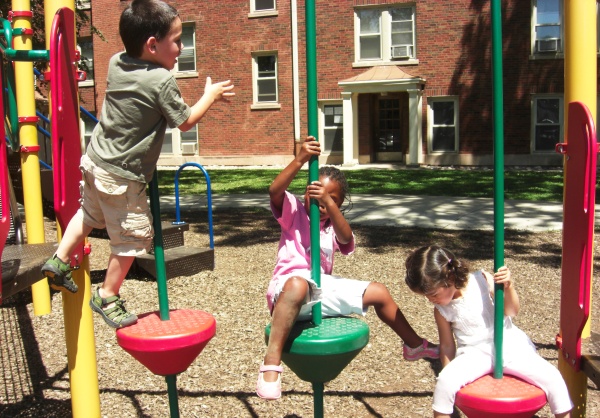‘Play is the beginning of knowledge,’ so a wise man once said. Indeed, recent studies have found clear links between play and deeper learning...so much so that there have been calls for Ofsted to stress the importance of play in its inspection framework. There are many compelling cases for the link between child-initiated play and learning, here are just a few:
 significantly higher when teachers allowed children to choose their own activities.
significantly higher when teachers allowed children to choose their own activities.As adults, we are often led to believe that learning must always involve something serious and arduous. But leave a group of five year-olds in a room with a pile of randomly-sized boxes and what will you likely see? Creativity, concentration, collaboration and an (albeit wonky) cardboard castle. This is great play but, perhaps more importantly, it is also excellent learning. One of our webinars from Anna Ephgrave shows persuasive evidence that a child’s brain ‘lights up’ to its maximum when it initiates its own play. Anna also shares her top 10 tips on how to spot when child-initiated play is taking place, including creativity, concentration, energy and persistence.
It’s not just a case of putting 20 children in a room with some Lego and bubble wrap and sitting back to observe rapid learning. Without adult involvement a child’s play can lead to chaos as they begin to argue or, faced with too many challenges, lose interest. Here are five top tips on how you can enhance a child’s learning when they’re at play:
There’s a great example from a school which encourages children to explore and play outside together, no matter the weather, including a bear hunt with sound-effects, instigated by the children.
Despite the growing evidence, there has been some debate that the government is focusing too much on formality and moving away from play-based approaches to learning. It will be interesting to see if there will be any changes in the near future. In the meantime, perhaps we as adults have something to learn from the children: maybe the only reason that we grow old is because we stop playing.
You will need to log in to access the pieces below but if your school or setting does not have a membership then simply take out a free trial to read for free.